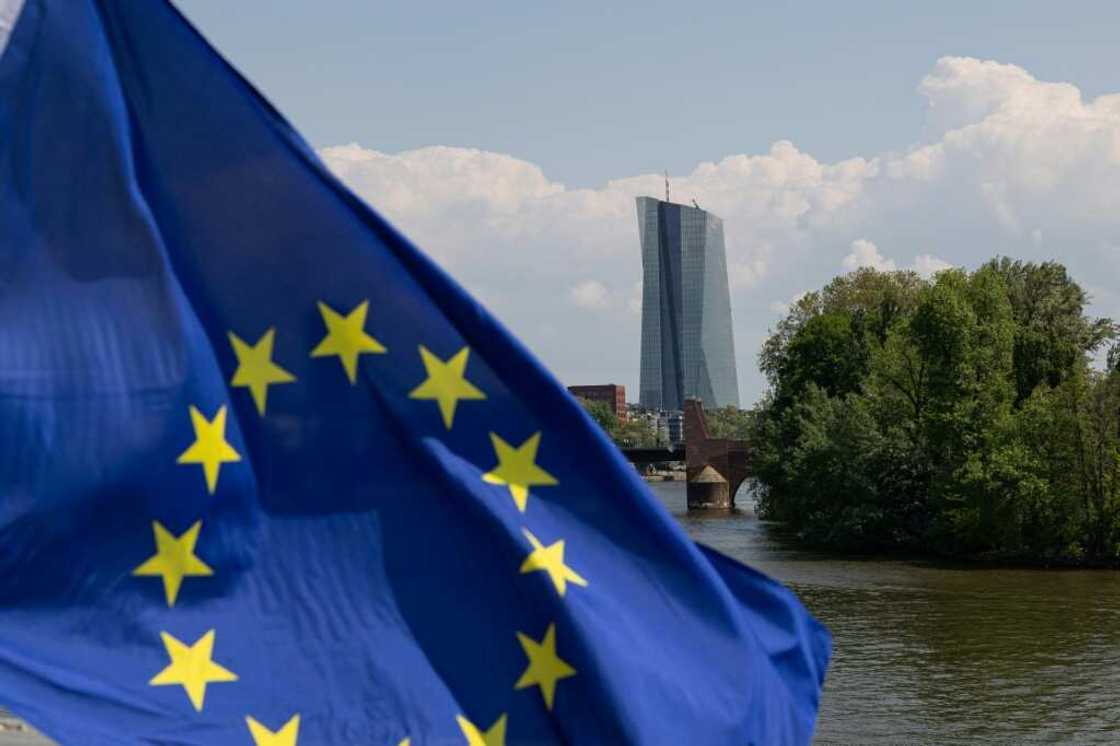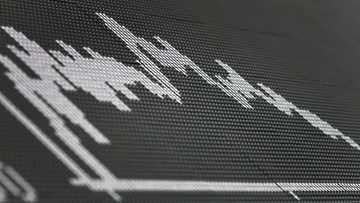Recession fears drag on euro and crude, Asian markets mixed

Source: AFP
Crude extended the week's losses Thursday, while the euro struggled to recover from 20-year lows and equities were mixed as recession fears continued to cast a pall across trading floors.
Expectations for a contraction in some of the world's leading economies, including China, where a new Covid-19 flare-up has generated angst, have increased in recent weeks owing to central bank interest rate hikes aimed at taming decades-high inflation.
The surge in inflation has been caused by soaring energy costs and rising post-lockdown demand, but observers said concerns about a contraction -- along with signs that consumers were being put off by high prices -- were weighing on the oil market.
Both main contracts were down more than one percent Thursday and have fallen about 10 percent this month. They are now below $100 for the first time since April.
Data on Wednesday showed US demand appeared to be waning as stockpiles rose, confounding expectations for a drop, while there are also some concerns that the China outbreaks -- including another spike in Shanghai -- could see major cities put into lockdown again.
Still, Vandana Hari, of Vanda Insights, said prices would likely rebound.
PAY ATTENTION: Share your outstanding story with our editors! Please reach us through info@corp.legit.ng!
"There isn't much rational assessment going on -- it's panic selling," she said. "The fears may not end but could get brushed aside when supply constraints are back to the fore. The market balance is tight."
While the drop in prices could temper inflation and give central banks some room to ease up on their rate hike cycle, the Federal Reserve remains on course for several more increases.
On Wednesday, minutes from its June policy meeting indicated officials were set for another three-quarter-point rate hike this month -- after the first such lift in 28 years in June -- saying they were worried "inflation pressures had yet to show signs of abating".
They also noted a need to maintain credibility among Americans, saying there was "a significant risk... that elevated inflation could become entrenched if the public began to question the resolve of the Committee".
The increases were likely to continue through to the end of the year, the minutes showed.
Despite the prospect of higher borrowing costs, Wall Street's three main indexes ended on a positive note.
But Asia struggled to pick up the baton, with the region's markets mixed.
Tokyo, Shanghai, Sydney, Seoul, Taipei and Jakarta all rose but Hong Kong, Singapore, Wellington and Manila fell.
The Fed's determination to ramp up rates has sent the dollar soaring against most other currencies, with the euro particularly under pressure due to the European Central Bank's much slower response to the spike in prices.
The single currency hit a 20-year low against the greenback this week, with fears for the eurozone economy growing as it faces a severe energy crunch owing to sanctions on Russia, while there is a possibility Moscow will cut off its gas supplies.
And while the ECB has said it will start hiking rates this month, analysts said there was a lot of uncertainty, as officials had to balance supporting the currency with avoiding a fragmentation, in which members' borrowing costs diverge too much.
Now there is a growing belief the euro will fall to parity with the dollar within weeks.
"I'm getting really worried about the recent speeches that have come out the past couple of days that show that there are a lot of concerns and a lot of disagreement" within the ECB governing council, said Vasileios Gkionakis of Citigroup.
"If the ECB wants to tame inflation and support exchange rates ... then it needs to do two things: hike rates and come up with an effective anti-fragmentation mechanism," he told Bloomberg.
And Kit Juckes at Societe Generale added that the currency "remains effectively unbuyable this summer".
"Europe's energy dependency on Russia is falling, but not fast enough to avoid recession if the (gas) pipeline is closed. If that happens, the (euro) will likely lose another 10 percent or so."
Key figures at around 0300 GMT
Tokyo - Nikkei 225: UP 0.7 percent at 26,298.66 (break)
Hong Kong - Hang Seng Index: DOWN 0.6 percent at 21,459.42
Shanghai - Composite: UP 0.3 percent at 3,356.82
Euro/dollar: UP at $1.0193 from $1.0186 on Wednesday
Pound/dollar: UP at $1.1937 from $1.1921
Euro/pound: DOWN at 85.40 pence from 85.43 pence
Dollar/yen: DOWN at 135.64 yen from 135.93 yen
West Texas Intermediate: DOWN 1.0 percent at $97.54 per barrel
Brent North Sea crude: DOWN 1.1 percent at $99.54 per barrel
New York - Dow: UP 0.2 percent at 31,037.68 (close)
London - FTSE 100: UP 1.2 percent at 7,107.77 (close)
Source: AFP





